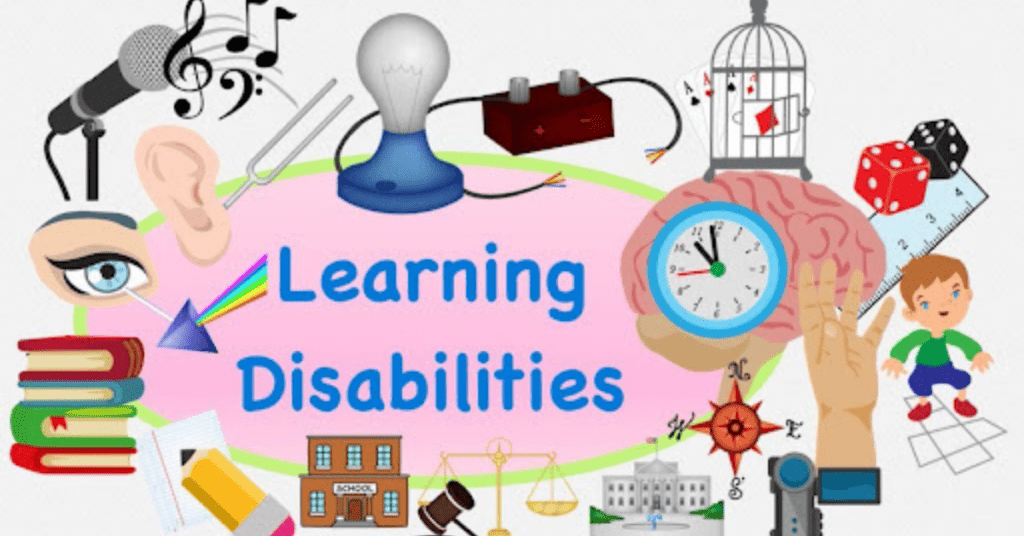Some of the most common, yet specific learning disability types are dyslexia, attention deficit disorder (ADD), and attention deficit hyperactivity disorder (ADHD). Dyslexia is a reading disability that makes it difficult for an individual to read or spell words. This can be caused by different things including genetics, a brain injury, illness, and a bad eye. Attention Deficit Disorder (ADD) is a problem with attention. People who have it can’t pay attention or be patient. They might also not stop talking, or they might do things without thinking about them first. ADD/ ADHD is often diagnosed when children start to go to school. They have trouble concentrating on the work. Getting your child screened early can help them with future challenges.
Contents
- 1 What Is Specific Learning Disability?
- 1.1 Types Of Specific Learning Disability
- 1.2 Prevalent Symptoms Of Specific Learning Disability
- 1.3 How To Help A Student With Specific Learning Disability
- 1.4 Prevalent Causes Of Specific Learning Disability
- 1.5 Additional Tips For Teachers
- 1.6 Therapy Options For Specific Learning Disability
- 1.7 Other Tips To Deal With Specific Learning Disability
- 1.8 Helping Someone With Specific Learning Disability
- 2 Conclusion
What Is Specific Learning Disability?
A specific learning disability (SLD) is a neurological disorder that affects the ability to process information. It can affect how well a student does in school. It affects reading, writing, math, and speech. SLD can also affect attention span, organization, and memory skills.
Types Of Specific Learning Disability
There are many different types of specific learning disabilities, each with its own set of symptoms. Some common types of SLD include dyslexia, dyscalculia, and ADHD.
Dyslexia
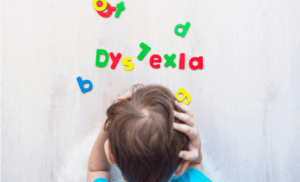
Dyslexia is a reading disorder. This is when you mix up letters, words, and sounds. They may also have trouble with other language skills such as writing and spelling.
Symptoms:
- Mixing up letters, words, and sounds
- The trouble with other language skills such as writing and spelling
- Slow reading speed
- Poor comprehension
Solutions:
There is no one cure for dyslexia. However, there are many things that can be done to help a student with dyslexia. Some solutions include tutoring, accommodations in the classroom, and therapy.
Dyscalculia
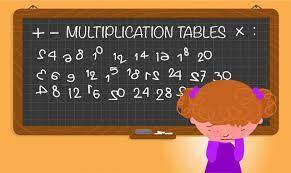
Dyscalculia is a math disorder. It is when a student has trouble with basic math skills. Things like addition, subtraction, multiplication, and division are hard for them to do.
Symptoms:
- The trouble with basic math skills
- Poor math comprehension
Solutions:
Just like with dyslexia, there is no one cure for dyscalculia. However, there are many things that can be done to help a student with dyscalculia. Solutions include tutoring, accommodations in the classroom, and therapy.
ADHD
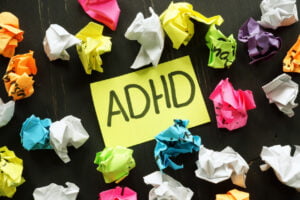
ADHD stands for Attention Deficit Hyperactivity Disorder. This is a disorder that affects attention span, hyperactivity, and impulsiveness.
Symptoms:
- Inattention
- Hyperactivity
- Impulsiveness
- Poor focus
Solutions:
There is no one cure for ADHD. However, there are many things that can be done to help a student with this disorder. Some solutions include tutoring, accommodations in the classroom, and medication.
Prevalent Symptoms Of Specific Learning Disability
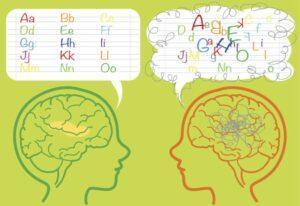
The symptoms of the disorder are usually identified at a very early age and even before children begin school. This information can help parents better understand their child’s development process, as well as present them with options for treatment that may be available to them.
Symptoms can include:
- You might be having trouble with reading comprehension or math skills that are not on grade level for your age. This can happen even if you had no problems before.
- Some people have trouble focusing on things and can’t stay still. But these problems can happen at home and at school even if you don’t have hyperactivity symptoms.
- Some older students have trouble staying focused on their assignments. They can try to do some things, like take breaks or go for walks to help them focus better. They might find it helpful.
The aforementioned symptoms are usually the most apparent when a child is in school. To diagnose a student with SLD, there should be several different assessments. This means that the student will need to go through lots of tests before they can be diagnosed as having SLD. There might be other tests that need to be done to see if a child has a language disability.
How To Help A Student With Specific Learning Disability
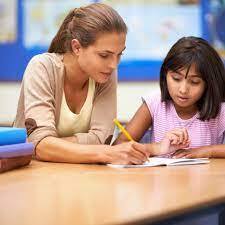
There are many things that can be done to help a student with SLD. Here are some tips:
- Tutoring: One-on-one tutoring can help a student with SLD better understand what they are learning. This is a great option for students with dyslexia, ADHD, and dyscalculia.
- Accommodations In The Classroom: Accommodating the way that a student learns can help them feel more comfortable in school. You want to be sure you find accommodations that work best for your child.
- Therapy: Therapy is great for students with SLD. A therapist can help them develop coping strategies to deal with the disability they have. This way, it doesn’t hinder their success in school or life overall.
Prevalent Causes Of Specific Learning Disability
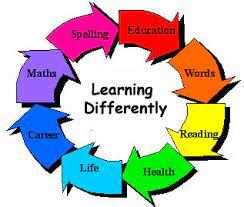
There are many causes of learning disabilities, some of which include brain injuries or organic problems with the central nervous system. Other common causes may be due to areas in the brain that control specific functions like reading and writing; these can be caused by environmental factors such as low oxygen at birth or exposure to toxins while still in utero.
- Brain Injuries: A brain injury can affect the way a person thinks, feels, and acts. It is especially true if someone has had a trauma, like after an accident or the injury of their head.
- Environmental Factors: There are some things that could lead to learning disabilities. They are being born with too little oxygen, being exposed to toxins while in the womb, not eating enough food while pregnant, and not spending time with people.
- Inherited Disorders: There are some disorders that a child can inherit from parents which could lead to a learning disability. This includes conditions like dyslexia, ADHD, and an autism spectrum disorder.
- Genetic Factors: Another cause of SLD is genetics. Some people might have a learning disability if their parents or grandparents have them too.
There are some treatments for students with SLD. They can work to their full potential in school and beyond. Learning problems like these should not be ignored; they do not go away on their own. It is important for teachers to understand this disability if it is present in a student they are teaching.
Additional Tips For Teachers
In order to help a student with SLD, you will need some tips and tricks up your sleeve. Here are some things that teachers should do when working with students who have learning disabilities:
- Be A Good Role Model: Students might be more likely to listen if they can see that you’re interested in the material. When you are excited about something, it is contagious and your student will be more interested too.
- Be Patient: It might take a student with SLD a little longer to understand what you are saying. Don’t get upset when the student is having a hard time understanding. Give them enough time to do their work so they can learn.
- Be Open: If you do not fully understand the disability, it is important for you to learn more about learning disabilities. This way you can help your student better. They might need some different things in the classroom.
- Get Help From A Specialist: There may be certain problems that a teacher cannot solve on their own; that’s why there are specialists out there. They know more about the disability and they can offer some great help in overcoming it.
- Do Not Ignore It: Some teachers might think that learning disabilities are only a problem when students get older; this is not true at all! Early intervention is very important, especially for young children who have started to show signs of an SLD.
There are many different types of specific learning disabilities, and each one has its own unique set of symptoms. If you think that your child might have a learning disability, it is important to get a diagnosis. This will tell if they do. There are many ways your child can get treatment. They will do better in school and beyond.
Therapy Options For Specific Learning Disability
There are many different types of therapy that can help a person with a specific learning disability. Some common therapies include:
- Occupational Therapy: Occupational therapists work on improving the skills needed for everyday activities. This might include helping a student learn how to write or improve their fine motor skills.
- Speech and Language Therapy: Speech and language therapists help students with communication skills. They might have trouble understanding what people are saying, or they might not be able to form words correctly.
- Psychotherapy: Psychotherapy is a type of therapy that helps people deal with their emotions. Students with SLD might feel frustrated or angry because they are having a hard time in school. A therapist can help students learn coping skills to manage these feelings.
Other Tips To Deal With Specific Learning Disability
- Get a diagnosis for your child as soon as possible if you think they might have a specific learning disability. The earlier the diagnosis, the better.
- There are many different types of therapy that can help your child overcome their disability. Find one that works best for them and stick with it!
- Be patient when helping your child with their homework. It may take them a little longer to get the results, but they will eventually succeed.
- Make sure your child gets plenty of exercises. This can help improve their focus and attention span.
- Encourage your child to read as much as possible. This will help them develop literacy skills and vocabulary.
- Stay positive! Your child is capable of doing so much more than you’d ever think!
Helping Someone With Specific Learning Disability
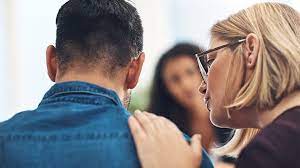
If you have a student with a learning disability, it is important to be patient. Don’t get upset when they don’t understand something; give them time and help if needed! They will do better in school and beyond. You can also consult specialists who know more about disabilities and how to treat them. There are many different therapies that can help a person with an SLD, so find one that works best for your student!
Conclusion
People with Specific Learning Disabilities (SLD) can be successful in school and life. They just need the right accommodations, strategies, and support to succeed. You should not think that people with SLD cannot learn. They may need special teaching styles to help them do well in school. Parents, teachers, and therapists need to work together as a team to provide supports for their children if they need them. One way you can ensure this happens is by joining our free parent-support group! We have fun activities for you on Saturdays so you don’t have to miss them because of work.
If you are looking for affordable Online Counseling MantraCare can help: Book a trial therapy session
